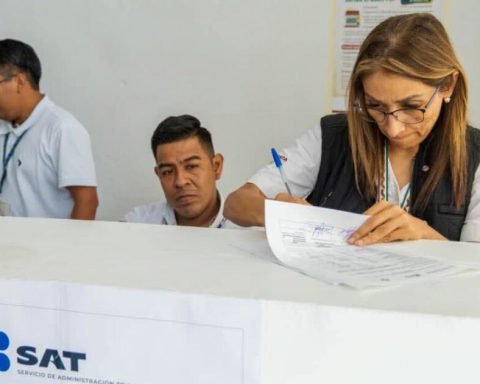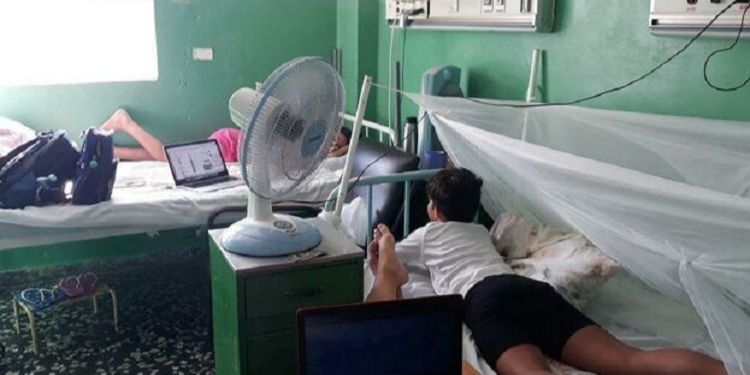When we talk about people of African descent who are trying to access to the labor market We start with a problem: believing that they are not professionalized. “The folklorizing stigma leads many people to think that we don’t have studies,” says Ana Hurtado, coordinator of the Afro-Mexican Youth organization.
According to the National Institute of Statistics and Geography (Inegi), more of 2.1 million people in this country they recognize themselves as Afro-Mexicans or Afro-descendants. Of these, the economically active population (PEA) exceeds 1.4 million, that is, they are those who have a job or are looking for one.
It is true that discrimination has caused backwardness and inequalities in many areas, but assuming that no one has developed job skills it is racist, points out Ana Hurtado, member of the Executive Committee of the Mexican Association of Caribbean Studies (AMEC).
So, a first point for the recruiting areas or employers is not stigmatize Afro-descendant talent with ideas that underestimate their potential, because that further distances them from a job opportunity that they deserve and for which they have the skills.
Women, between inequalities and harassment
Another fundamental point to tackle the obstacles of the labor inclusion it is the perspective of gender and sexual diversity, points out Ana Hurtado. In Mexico, Afro-descendant men are up to 46% less likely to reach the top wealth quintile, according to research For my race inequality will speakfrom Oxfam.
But black women in this country are 60% less likely to reach better economic conditions. According to the 2020 Population and Housing Census, 78% of Afro-descendant men are economically active, while the rate for women is 53 percent.
Although many Afro-Mexican women have managed to access the right to education, “the main problem for them to get a job is professionalization,” says Ana Hurtado. Living in excluded communities —and excluded precisely because their inhabitants are Afro-descendants— and doing most of the care work are two of the reasons why many do not have scope for training.
The population census indicates that almost 728,400 people Afro-Mexican women are economically inactive, that is, they do not have a job and are not looking for one. A third of that population does not work because they are dedicated to studying.
But the majority, 44%, is dedicated to housework and care work unpaid and therefore not available to ask for another job. The Inegi also indicates that it is women who are mainly in charge of these activities, which have an economic value for the country of 6.4 billion pesos per year.
With this information, companies could understand that there are “structural inequalities that affect specific communities” to generate recruitment plans and flexible work designed for women workers of African descent. “It is necessary to incorporate the intercultural and anti-racist perspective” in public and business policies.
The sexual harassment it is another recurring problem for many women who get a job. “The hypersexualization of racialized bodies is a reality that has been addressed very little. It is necessary to talk more about racialized gender-based violence and understand how it impacts” on the working lives of women and LGBTQ2+ people of African descent.
The effect of migration and other data
To talk about labor inclusion of the Afro-descendant population we must touch the subject of migration. The diaspora is diverse, it comes from communities in Veracruz, Oaxaca, Guerrero, Coahuila and other entities, but it also comes from other countries.
Most come to the big cities in search of better schools or jobs, but once in those places “many people do not have the minimum conditions for a decent life. Therefore, it would be ideal to think of maintenance scholarships or financial support to help them professionalize.
Ana Hurtado brings stigma back into the conversation: Afro-descendant migrants are seen differently from white migrants and that can determine their hiring in a company.
“The educational system was formulated in an idea of miscegenation of indigenous and Spanish (…) and it took a long time to recognize the Afro-descendant communities”, in that sense, the recruiters may say that they do not discriminate, but without the proper training in human rights they could be doing so.
Another point that Ana Hurtado points out is the generation of data to make better decisions. It was until 2019 when she was recognized at the Afro-descendant population in the Mexican Constitution and “that has allowed for more information, but it is just the beginning.”
Institutions must continue collecting figures to improve public policies. But companies, details the specialist, can also do it in their work centers, investigating how many people of African descent work there, in what positions and asking what they need to improve. With this information they will be able to improve practices.













